Calcutta High Court
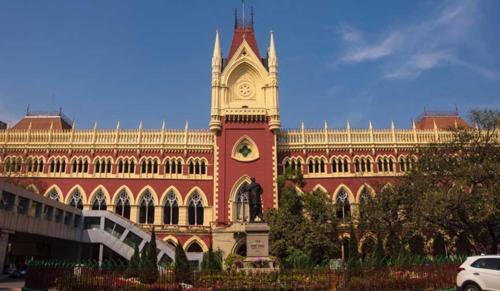
Calcutta High Court Quashes LOC in Rs 3,897 Crore Loan Default Case, Upholds Right to Travel
The Calcutta HC held that the mere quantum of an alleged loan default cannot justify restricting a citizen’s right to travel abroad and set aside the Look Out Circular issued against the petitioner.
The case concerned an LOC issued at the instance of the SFIO against a former CEO in connection with an investigation into alleged defaults of Rs 3,897 crore by a company admitted to Corporate Insolvency Resolution Process.
The Court observed that no cognisable IPC case had been registered and neither interim nor final investigation reports had been submitted.
It found no material to show that permitting travel would affect the probe or harm public interest.
Thanush SBookmark
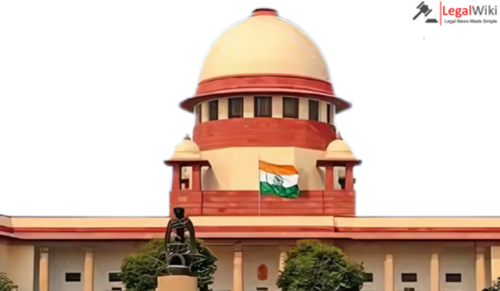
Supreme Court Dismisses Appeals in Actress Prathyusha Death Case, Upholds Abetment Conviction
The Supreme Court of India has dismissed appeals in the 23-year-old death case of Telugu/Tamil actress Prathyusha, ruling out allegations of murder and rape.
A Bench of Justices Rajesh Bindal and Manmohan held that consistent eyewitness accounts and medical evidence established death by poisoning. The Court noted that Prathyusha and her boyfriend, Gudipalli Siddhartha Reddy, had consumed poison amid opposition to their relationship, though Reddy survived.
Rejecting the defence of accidental intake, the Court found Reddy guilty of abetment to suicide for procuring the poison and directed him to surrender within four weeks.
It also termed the postmortem conducted by Dr. Muni Swamy unprofessional.
[Gudipalli Siddharta Reddy v. State (C.B.I.)]
VishwaBookmark
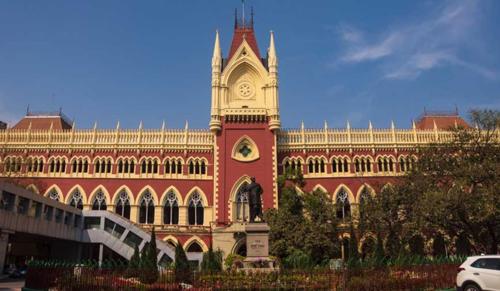
Partition Decree Executable Only After Stamp Duty Payment: Calcutta High Court
The Calcutta High Court has held that a final decree in a partition suit becomes executable only after payment of the requisite stamp duty and proper engrossment on stamped paper.
The Court clarified that the decree holder may deposit stamp duty for the entire property to avoid delay in execution and later recover proportionate shares from other co-sharers.
Emphasising that procedural requirements should not defeat substantive justice, the Court directed the executing court to proceed with execution upon such payment and ensure satisfaction of the decree within one month.
[Sri Sandip Kumar Saha v. Somnath Saha & Ors.]
MananBookmark
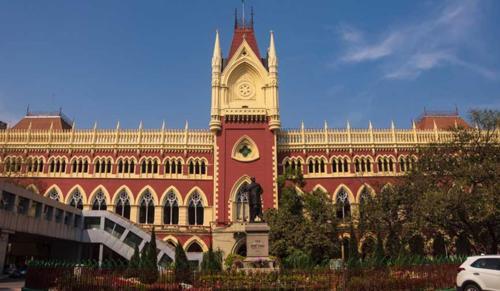
Accused Cannot Demand Hearing or Impleadment at Investigation Stage: Calcutta High Court
The Calcutta High Court held that an accused has no right to be heard on the mode, manner or agency of investigation and cannot seek impleadment in a writ petition seeking a probe into alleged police inaction.
The case arose from a writ petition seeking an investigation into a complaint alleging bias and collusion by police officials, during which the FIR complainant and persons named as prospective accused sought to be added as parties.
The Court held that criminal law does not permit participation of the accused during investigation, clarified that Section 223(1) of the BNSS apply only at the cognizance stage, and dismissed the impleadment applications as lacking merit.
[Arnab Paul v. State of West Bengal & Ors.]
17 days ago
Thanush SBookmark

Statutory Appeal Must be Exhausted Before Invoking Article 226 Against Demolition Order: Calcutta High Court
The Calcutta High Court held that a demolition order issued by a municipal authority cannot be directly challenged under Article 226 when an effective statutory appellate remedy is available.
The case arose from a writ petition filed by a property owner challenging a demolition direction issued by the Executive Engineer (Planning) after a hearing conducted pursuant to earlier High Court directions.
The Court found that the authority had considered the petitioner’s submissions, identified deviations from the sanctioned plan, and passed a reasoned order.
The Court dismissed the petition while granting liberty to pursue the appellate remedy.
[Smti. Kishori Bala Das v. The Andaman and Nicobar Administration & Ors.]
Thanush SBookmark

ITC Sues Britannia Over Alleged Imitation of ‘Sunfeast Wowzers’ Packaging
ITC Limited has approached the Calcutta High Court alleging that Britannia Industries infringed its copyright and passed off its products by launching cheese biscuits with packaging deceptively similar to Sunfeast Wowzers.
ITC claims Britannia’s 50-50 cheese variant copies its distinctive black, yellow, and orange colour scheme, visual layout, and trade dress.
The Court noted that no ad-interim relief was sought at this stage and directed the exchange of affidavits. ITC alleges consumer confusion, seeks a permanent injunction, and has claimed ₹50 crore in damages.
The matter is listed for February 26, 2026.
[ITC v. Britannia]
MananBookmark

Calcutta High Court Directs WB Govt to Deploy Central Forces to Prevent Violence in Beldanga
The Calcutta High Court directed the West Bengal government to utilize the central armed police forces already deployed in Murshidabad’s Beldanga area to prevent the recurrence of violence.
Observing that repeated incidents posed a serious threat to life, liberty, and property, the Court stressed the need for immediate and effective measures to restore normalcy.
It tasked the District Magistrate and Superintendent of Police with ensuring public safety and permitted the use of intelligence inputs. The Court also left it open for the Union government to consider an NIA probe into the incident.
The directions were passed on a plea by BJP leader Suvendu Adhikari.
MananBookmark

Calcutta High Court Takes Suo Motu Cognisance of Worsening Air Quality in Kolkata
The Calcutta High Court has taken suo motu cognisance of the deteriorating air quality in Kolkata, initiating a PIL over AQI levels recorded in the “very poor” to “hazardous” range.
The action follows concerns regarding the persistent decline in air quality across the Kolkata-Howrah metropolitan region.
The Court directed the State authorities to file their responses by February 28, 2026, and ordered that the matter be heard along with an existing PIL on the issue.
The petition seeks effective enforcement of environmental laws to address air pollution and protect the fundamental right to clean air under Articles 21 and 47 of the Constitution.
a month ago
Thanush SBookmark
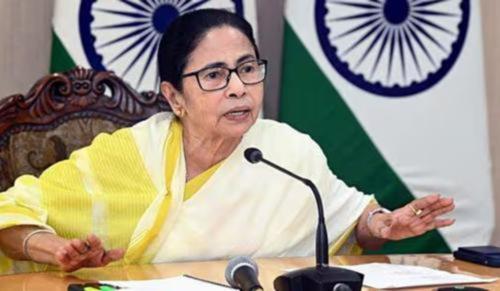
Calcutta High Court Disposes TMC Plea After ED Says Nothing Seized in I-PAC Raids
The Calcutta High Court disposed of a plea filed by the Trinamool Congress seeking protection of its political data after the Enforcement Directorate informed the Court that nothing was seized during the January 8 searches at I-PAC’s office and its director’s residence.
The Court noted that the panchnamas prepared during the searches confirmed no seizure of documents or electronic devices.
In view of this submission, the Court declined to grant further relief.
A separate petition by the ED seeking a CBI probe was adjourned, as similar matters are pending before the Supreme Court, which is scheduled to hear the issue.
[All India Trinamool Congress v. Enforcement Directorate]
MahiraBookmark

ED Moves Supreme Court Seeking CBI FIR Over Alleged Obstruction of Searches Involving Mamata Banerjee
The Enforcement Directorate has approached the Supreme Court seeking directions for registration of a CBI FIR against Mamata Banerjee and State officials for allegedly interfering with ED search operations at the Kolkata offices of political consultancy firm I-PAC and Pratik Jain.
The ED alleged that searches linked to a coal smuggling probe were disrupted through State intervention, leading to the removal of crucial physical and electronic material and preventing officers from performing their statutory duties.
The plea reached the Supreme Court after the Calcutta High Court adjourned related proceedings on January 9 amid courtroom commotion.
The State of West Bengal has filed a caveat seeking a prior hearing.
Thanush SBookmark

Collegium Recommends Justice Sujoy Paul as Chief Justice of Calcutta High Court
The Supreme Court Collegium held that Justice Sujoy Paul is fit to be appointed as the Chief Justice of the Calcutta High Court and formally recommended his elevation.
It observed that Justice Paul has been serving as Acting Chief Justice of the Calcutta High Court since September 2025 and has extensive judicial experience across multiple High Courts.
The Collegium noted his prior service as Acting Chief Justice of the Telangana High Court and his background in civil, constitutional, service, and industrial law.
The recommendation follows his transfers from the Madhya Pradesh and Telangana High Courts, reflecting continuity and administrative competence in judicial leadership.
MananBookmark
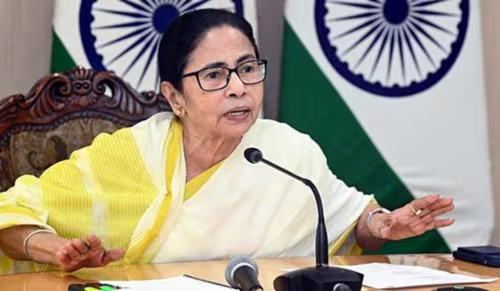
ED Moves Calcutta HC Seeking CBI Probe Against Mamata Banerjee Over Alleged Obstruction Of PMLA Searches
The Enforcement Directorate has approached the Calcutta High Court seeking a CBI probe against West Bengal Chief Minister Mamata Banerjee, alleging obstruction of a lawful money-laundering investigation during ED searches at the premises of political consultancy firm I-PAC.
The ED has claimed that its officers were restrained during the search and that documents and electronic devices were taken away, allegedly interfering with its statutory powers under the Prevention of Money Laundering Act, 2002.
The Trinamool Congress has denied the allegations, calling the move politically motivated and linked to the upcoming elections. It has also sought protection against alleged misuse of party-related documents.
Multiple petitions filed by the ED, the TMC and I-PAC’s co-founder are listed before Justice Suvra Ghosh.
MananBookmark
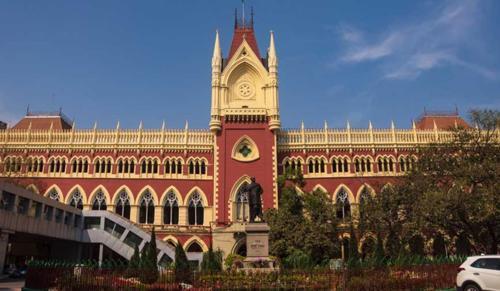
Divorced daughters can get family pension if divorce case started before parent’s death: Calcutta HC
The Calcutta High Court has held that a divorced daughter can claim family pension if she was financially dependent on the pensioner and divorce proceedings had commenced during the pensioner’s lifetime.
The case concerned a railway retiree’s daughter who was deserted by her husband in 1995 and began living with and depending on her father from 1997, without any independent source of income. After the pensioner’s death, the Railways rejected her claim in 2022.
The Central Administrative Tribunal allowed her claim in 2024. Upholding the CAT’s order, the High Court rejected the Union of India’s challenge, holding that the daughter’s dependency stood established and the Railways’ objection was unsustainable.
The writ petition was dismissed.
[UOI & Ors. v. Mita Saha Karmakar]
Thanush SBookmark

Calcutta High Court Finds Prima Facie Case by IndiaMART Against OpenAI Over ChatGPT Search Exclusion
The Calcutta High Court observed that IndiaMART has made out a strong prima facie case against OpenAI for allegedly excluding its listings from ChatGPT search results, while allowing competing platforms to appear.
Justice Ravi Krishan Kapur noted that such selective exclusion may cause loss of goodwill, reputation, and commercial injury.
However, the Court declined to grant interim relief at this stage, holding that doing so would amount to granting final relief without hearing OpenAI.
The matter has been listed for January 13, after completion of fresh service on the respondents.
[IndiaMART InterMESH Ltd v. OpenAI Inc & Ors.]
MananBookmark

Calcutta High Court Declines Interim Relief Seeking CBI Probe Into Lionel Messi Incident
The Calcutta High Court has declined to grant interim relief seeking a CBI investigation into the chaos that occurred during footballer Lionel Messi’s visit to Kolkata on December 13 at the Salt Lake Stadium.
The Court noted that a criminal investigation by a State-constituted Special Investigation Team and an enquiry headed by a retired High Court judge are at a preliminary stage.
Reiterating that investigation is a statutory function of the police, it held that a CBI probe cannot be ordered on mere allegations.
The Court further observed that the State was competent under the Commissions of Enquiry Act, 1952, to appoint an enquiry committee. Notice was issued to the State and the event organiser, and the matter has been listed for February 16, 2026.
[Suvendu Adhikari & Anr. v. The State of West Bengal & Ors.]
Thanush SBookmark
